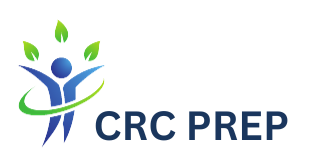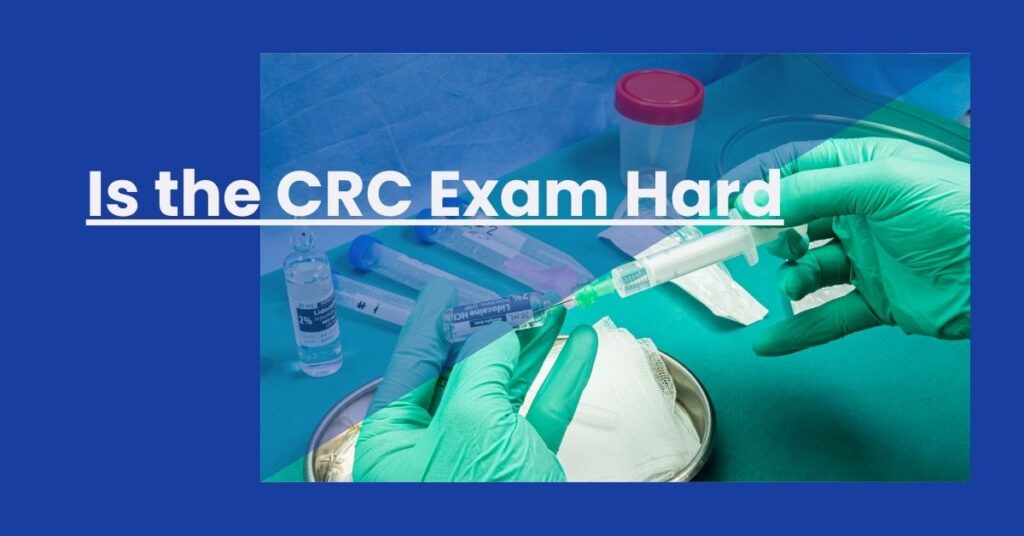The CRC Exam is often considered challenging due to its broad range of topics and detailed understanding required to pass. With pass rates hovering around 65%, it’s clear that comprehensive preparation is crucial for success.
But don’t let the statistics dampen your enthusiasm! A focused study plan and the right resources can significantly improve your chances.
In this article, you’ll explore:
- The critical topics you need to master for the CRC Exam
- Effective study techniques and materials
- Tips from those who’ve successfully navigated and passed the CRC Exam
Eager to learn if the CRC Exam is hard? Read on for insights and strategies that might make all the difference.
Introduction
Navigating the journey to becoming a Certified Rehabilitation Counselor (CRC) can often lead you to one pivotal question: Is the CRC exam hard? The significance of this inquiry cannot be overstated, as the CRC exam is the gateway to a career vested in empowering individuals with disabilities to achieve their personal, career, and independent living goals.
As you consider stepping onto this esteemed path, it’s crucial to approach the CRC with clarity and insight. This exam assesses your readiness to provide high-quality rehabilitation counseling services. Let’s walk through what the CRC exam entails, its level of difficulty, and how best to prepare for this career-defining milestone.
Understanding the CRC Exam
Before delving into the challenges, it’s vital to grasp what the CRC exam is all about. As a comprehensive test, it covers every corner of rehabilitation counseling—ethics, counseling theories, case management, and more.
Components:
- Rehabilitation and Disability (R): Assessing your knowledge on legislative laws, medical aspects, and service delivery systems.
- Counseling (C): Examining your expertise in the areas of counseling theories, techniques, and interventions.
The CRC exam consists of 175 multiple-choice questions, aiming to evaluate both your academic learning and practical effectiveness in the field. With a standard administration time of 3 ½ hours, the exam not only tests your mastery over the subject matter but also your ability to manage time efficiently under pressure.
The Challenges of the CRC Exam
Now, let’s talk about why many veer towards asking, “Is the CRC exam hard?” The CRC exam is intricate, with a breadth of topics that demand a thorough understanding and the ability to apply that knowledge in a practical, thought-provoking manner.
The main challenges include:
- Comprehensive Content: The exam’s extensive range of topics means you’ll need to be familiar with a vast amount of information.
- Complex Questions: Beyond mere recollection, the exam requires deep understanding and critical thinking to address nuanced questions.
- Pace and Stamina: Completing 175 questions in a limited amount of time is a true test of mental endurance.
Recognizing these obstacles is the first step towards conquering them. You’re not alone in feeling daunted by the scale of this exam. However, with the right mindset and preparation, you can transform these challenges into stepping stones for success.
Assessing the Difficulty of the CRC Exam
The question of the exam’s difficulty is not just a matter of perception—pass rates offer a quantifiable glimpse into its challenges. According to recent figures, pass rates fluctuate around the 65% mark, which conveys a message of hope but also a warning not to underestimate the test.
Comparisons to other professional certification exams can also provide context. Like many specialized certifications, the CRC exam requires both a broad and in-depth knowledge base, coupled with the ability to think critically under time constraints.
Practitioners who have faced the CRC exam often share stories about the rigorous preparation involved. While some individuals might find the content aligns well with their academic pursuits, others may need to devote significant extra hours of study to ensure they are well-prepared for the exam.
Listening to the experiences of past test-takers can provide real-world insight into what it takes to ace the exam. It’s clear that while the exam is challenging, it is also fair and achievable, designed to affirm your capability as a future Certified Rehabilitation Counselor.
Key Topics and Areas of Focus
Preparing for the CRC Exam means getting acquainted with a wide array of subjects that form the cornerstone of professional practice. This examination covers topics from ethical, professional practice to vocational assessment and job placement. The key is to focus on areas that may tip the scales in your favor.
Some of the core subjects include:
- Foundations of Rehabilitation Counseling
- Assessment, Appraisal, and Diagnostic Techniques
- Career Development and Job Placement
- Medical, Psychological, and Environmental Aspects of Disabilities
- Case Management and Service Coordination
- Counseling Theories and Practice
- Professional Ethics and Legislation
You might wonder, within these domains, which areas should command your utmost attention. Insights from past exams point to the criticality of Professional Ethics and Counseling Techniques, often emphasized for their practical relevancy in your day-to-day work as a counselor. Start with these pillars of rehabilitation counseling and then broaden your study to encompass all the other areas.
To get a detailed breakdown of the content areas and their respective weight on the exam, visit the CRC Certification website.
A well-strategized study plan that gives weight to each topic based on its prominence in the exam can make the difference. Tackling the breadth of these subjects may feel overwhelming, but with a methodical approach, you can master the content piece by piece.
Preparing for the CRC Exam
Is the CRC exam hard? It can be, especially without a well-thought-out preparation strategy. The key to a successful exam experience is adequate preparation. With numerous study materials and a wealth of information available, where do you even begin?
First, consider the official study materials provided by the CRCC. These resources are tailored to align with the exam content and can significantly streamline your study process. You can find more information and purchase the study guide directly from the CRCCertification website.
Besides the official guide, an assortment of books, practice exams, and online resources act as your study arsenal. Circles of fellow aspirants could serve as accountability groups, sharing knowledge, and resources. Here, the synergy of shared experience often illuminates challenging concepts, easing the comprehension process.
Diverse learning formats appeal to different study preferences. Whether you are a visual learner who benefits from charts and graphs or an auditory learner who retains information better through listening, there’s a resource available. By embracing a study method compatible with your learning style, the material will no longer seem as daunting, and the question of “Is the CRC exam hard?” may begin to lose its sting.
The Psychological Aspect of Taking the CRC Exam
Recognizing that your state of mind significantly impacts your performance can be a game-changer. The CRC exam not only challenges your knowledge but also tests your psychological preparedness. The right mental attitude can power you through hours of study and the intense focus needed on exam day.
Consider the following tips to cultivate a positive mental approach:
- Practice Mindfulness: Techniques such as meditation can help reduce anxiety and increase concentration.
- Develop a Routine: Set aside regular study times and mimic the testing environment to get accustomed to the exam format.
- Take Care of Your Body: Regular exercise, sufficient rest, and good nutrition can enhance your cognitive function and stress resilience.
Such psychological preparedness can sharpen your focus, enabling you to tackle the exam with confidence and clarity. Although there isn’t specific research data related to CRC Exam stress management provided here, general stress-reduction techniques are universally applicable and can be easily adapted to your exam preparation.
Tips From Successful CRC Exam Takers
Learning from those who have triumphed over the exam can offer invaluable advice. Here’s what some successful CRC exam-takers advise:
- Start Early: Begin studying months in advance to avoid cramming.
- Study Smart: Prioritize the most heavily weighted topics on the exam.
- Get Practice: Taking numerous practice tests can acquaint you with the format and time constraints.
- Join Study Groups: Peer discussions can deepen your understanding and offer new perspectives.
- Believe in Yourself: Confidence, born of preparation, will reduce exam day anxiety.
Take heart in knowing success is attainable—many before you have navigated these waters and emerged victorious. Every piece of advice is a testament to the power of dedication and the right mindset in conquering the question: Is the CRC exam hard?
For more testimonials and firsthand success strategies, consider checking out insights from certified individuals via the AAPC Community.
Conclusion
Navigating the complexities of the CRC Exam requires a profound commitment to understanding and preparation. While the question, “Is the CRC exam hard?” may linger in your mind, remember that with a careful study strategy, the right resources, and psychological readiness, you can transform this challenge into an achievement.
The path to becoming a Certified Rehabilitation Counselor is paved with dedication. By thoroughly immersing yourself in key topic areas, adopting successful study habits, and learning from the experiences of those who have passed, you’re equipping yourself to not just face the exam but to excel in it.
Keep steadfast in your journey to certification. It represents more than just the culmination of your hard work—it’s the doorway to a career that changes lives, including your own.
Is the CRC Exam hard? Get insights on the exam difficulty, preparation tips, pass rates, and essential study strategies for success.

